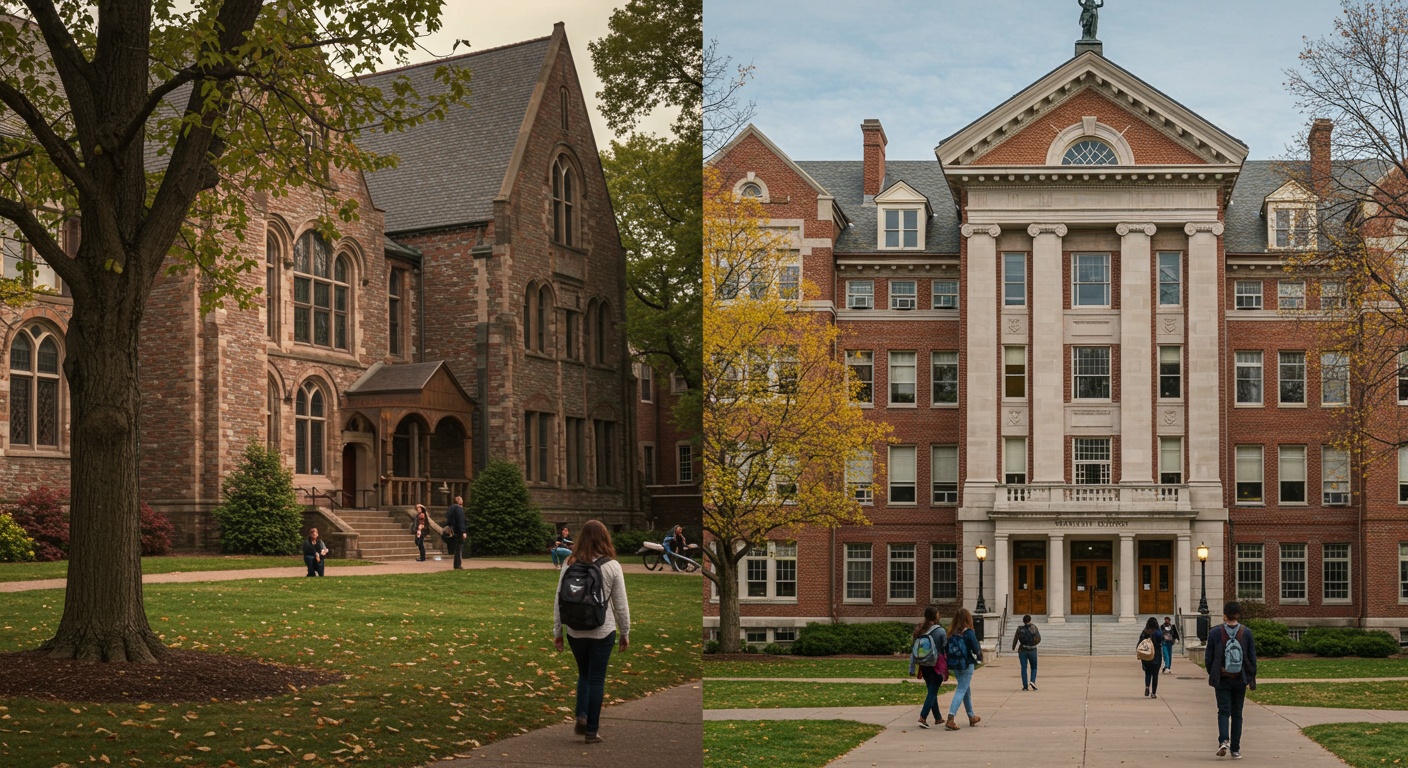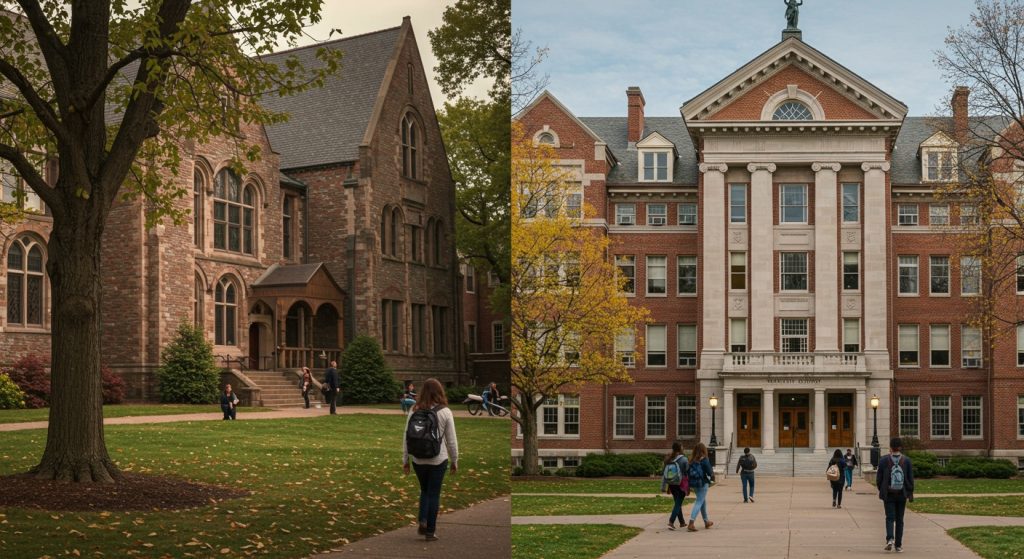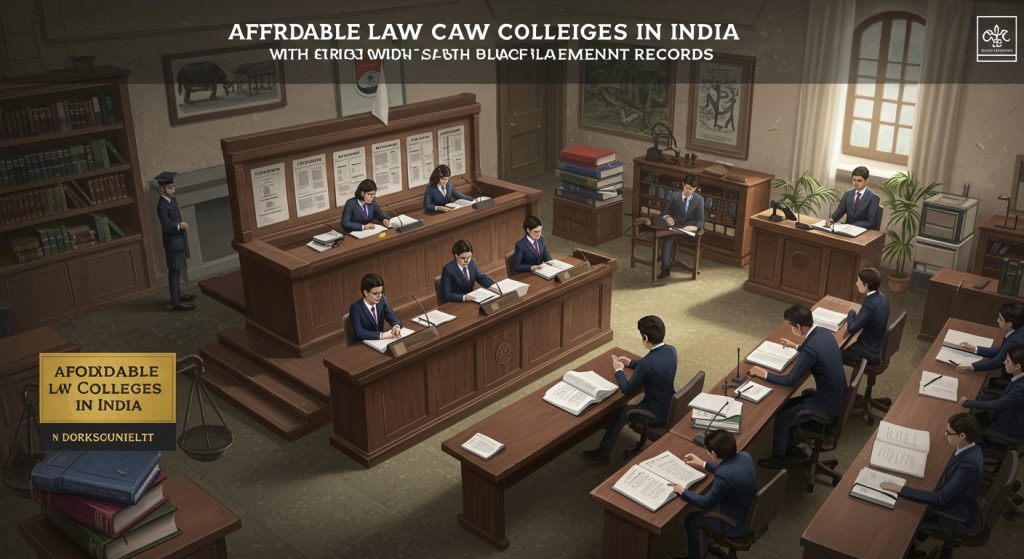Navigating the complex world of legal education demands a crucial first step: choosing the right law school. Public and private institutions offer distinct pathways, each shaping future legal careers in unique ways. Key criteria like tuition costs, faculty expertise. Alumni networks significantly influence this pivotal decision. Evaluation factors extend beyond rankings, encompassing specific program strengths, such as environmental law at a public university known for its research, or corporate law at a private institution with strong ties to Wall Street firms. Understanding these factors allows prospective students to align their legal ambitions with the resources and opportunities each type of school provides, paving the way for a successful and fulfilling legal career.

Understanding the Landscape: Public vs. Private Law Schools
Choosing a law school is a significant decision. One of the first considerations is often whether to attend a public or a private institution. Understanding the core differences between these two types of Law schools is crucial for making an informed choice. Public law schools are typically funded by state governments. This often translates to lower tuition costs, especially for in-state residents. Their mission is often tied to serving the public interest within their state. They may have strong programs focusing on state-specific Law and legal issues. Private law schools, on the other hand, rely primarily on tuition, endowments. Private fundraising. They often have higher tuition rates but may also offer more generous financial aid packages. Private institutions often have a broader national or international focus and may boast specialized programs in niche areas of Law.
Tuition and Financial Aid: The Bottom Line
The most significant difference between public and private Law schools often boils down to cost. Public Law schools generally offer lower tuition rates for residents of the state in which they are located. This is a considerable advantage for students who are willing to attend a school within their home state. But, out-of-state tuition at public Law schools can be comparable to, or even higher than, tuition at private institutions. Private Law schools typically have higher sticker prices for tuition. But, it’s essential to look beyond the initial cost and consider financial aid opportunities. Many private Law schools have substantial endowments that allow them to offer generous need-based or merit-based scholarships. It’s not uncommon for students to receive significant financial aid packages that make the net cost of attending a private Law school comparable to, or even lower than, a public Law school, especially if considering out-of-state tuition. It’s crucial to research the specific financial aid policies of each school you’re considering. Look into the availability of scholarships, grants. Loan programs. Contact the financial aid office at each school to discuss your individual circumstances and get a realistic estimate of the total cost of attendance.
Admissions and Academics: What to Expect
The admissions process for both public and private Law schools is highly competitive. Factors such as LSAT scores, undergraduate GPA, personal statements. Letters of recommendation are carefully evaluated. But, there can be subtle differences in how these factors are weighed. Public Law schools may prioritize applicants from their state, particularly those who demonstrate a commitment to practicing Law within that state. They may also place a greater emphasis on LSAT scores and GPA as indicators of academic potential. Private Law schools may have a more holistic approach to admissions, considering a wider range of factors such as work experience, extracurricular activities. Diversity of background. They may also be more willing to take risks on applicants with strong personal statements or unique experiences. Academically, both public and private Law schools offer rigorous curricula designed to prepare students for the bar exam and legal practice. But, there may be differences in the areas of specialization offered. Private Law schools often have specialized programs in areas such as international Law, intellectual property Law, or environmental Law. Public Law schools may focus on areas such as state constitutional Law, public interest Law, or criminal justice.
Career Prospects: Where Will Your Degree Take You?
The career prospects for graduates of both public and private Law schools are generally strong. There can be differences in the types of opportunities available. Graduates of top-tier private Law schools often have an advantage in securing positions at large law firms, prestigious clerkships. High-profile government agencies. These schools often have strong alumni networks and established relationships with leading employers. Graduates of public Law schools may find more opportunities in state and local government, public defender offices. Smaller law firms. They may also be well-positioned to practice Law in the state where they attended school, given their familiarity with state laws and legal procedures. Ultimately, your career prospects will depend on a variety of factors, including your academic performance, extracurricular activities, networking skills. Career goals. It’s vital to research the employment statistics of each Law school you’re considering and to talk to alumni about their career experiences.
Location and Culture: Finding Your Fit
Location and culture are often overlooked factors in the Law school selection process. They can have a significant impact on your overall experience. Public Law schools are typically located in or near major cities within their state. This can provide access to a wide range of internship opportunities, networking events. Cultural attractions. The student body at public Law schools may be more diverse in terms of socioeconomic background and geographic origin. Private Law schools can be located in a variety of settings, from urban centers to suburban campuses. The culture at private Law schools may be more competitive or academically focused. The student body may be more homogeneous in terms of socioeconomic background and academic credentials. Consider what type of environment you thrive in. Do you prefer a bustling urban setting or a quieter campus environment? Do you value diversity and inclusivity or a more traditional academic culture? Visiting the campuses of the Law schools you’re considering and talking to current students can help you get a sense of the school’s culture and determine whether it’s a good fit for you.
Real-World Examples: Success Stories
To illustrate the differences between public and private Law schools, let’s consider a few real-world examples. Example 1: Maria, a graduate of a top-tier private Law school. Maria received a generous scholarship to attend a prestigious private Law school. After graduating, she secured a coveted clerkship with a federal judge and then went on to work at a large law firm specializing in corporate Law. Her Law school’s strong alumni network and reputation helped her land these opportunities. Example 2: David, a graduate of a public Law school. David attended a public Law school in his home state and received a significant tuition discount as a resident. After graduating, he joined the state’s public defender office, where he represents indigent clients in criminal cases. His Law school’s focus on public interest Law and his connections with local attorneys helped him secure this position. Example 3: Sarah, a graduate of a private Law school with a strong public interest program. Sarah attended a private Law school that offered a robust public interest program and significant financial aid for students pursuing public service careers. After graduating, she joined a non-profit organization that provides legal services to low-income families. The Law school’s emphasis on pro bono work and its relationships with local non-profits helped her launch her career in public interest Law. These examples demonstrate that success in Law can be achieved through both public and private Law schools. The key is to choose a school that aligns with your interests, goals. Financial situation.
Making the Right Choice: A Checklist for Prospective Law Students
Choosing a Law school is a personal decision that should be based on careful consideration of your individual circumstances. Here’s a checklist to help you make the right choice:
- Define your career goals: What type of Law do you want to practice? What type of employer do you want to work for?
- Assess your financial situation: How much can you afford to pay for Law school? What financial aid opportunities are available?
- Research Law schools: Compare tuition rates, financial aid policies, admissions requirements, academic programs, career placement statistics. School culture.
- Visit Law school campuses: Talk to current students, faculty. Alumni. Attend classes and tour the facilities.
- Consider your personal preferences: Do you prefer a public or private institution? A large or small school? An urban or rural setting?
- Weigh the pros and cons of each option: Create a spreadsheet to compare the costs, benefits. Drawbacks of each Law school you’re considering.
- Trust your instincts: Choose the Law school that feels like the best fit for you.
Conclusion
Choosing between a public and private law school is a profoundly personal decision. You’ve navigated the key considerations: cost, faculty focus, specialization availability. Career services. Remember, while rankings and prestige hold weight, the best school for you aligns with your unique financial situation, desired legal field. Learning style. Think of it as building a legal career blueprint. A public school might offer a more accessible starting point, allowing you to graduate with less debt and explore public service opportunities. On the other hand, a private school’s specialized programs and extensive alumni network could accelerate your path to a specific, perhaps more lucrative, legal career. As you move forward, speak with current students and alumni from both types of institutions. Attend virtual events and ask targeted questions about their experiences. Don’t be afraid to negotiate financial aid packages. Your legal journey is just beginning. Choosing the right school is a crucial first step. Believe in your potential and make a decision that empowers your future.
More Articles
Best UK Universities for a Law Degree: A Comprehensive Guide
Top Law Schools in the UK for International Students
Public vs. Private Colleges: Best Options for Finance in USA
Application Deadlines and Admission Requirements for Top Colleges in France
FAQs
Okay, so public and private law schools – what’s the real difference, beyond just, like, who owns them?
Great question! At the heart of it, public law schools are usually state-funded, meaning tuition is often (but not always!) lower for in-state residents. Private law schools rely more on tuition, endowments. Donations. This can impact cost, size. Sometimes even the focus of the curriculum, though that’s less of a hard and fast rule.
Is it true public schools are only good if you want to practice in that specific state?
That’s a common misconception! While public schools often have strong regional connections, meaning they’re great for landing jobs in their state, many are nationally ranked and highly respected. Think of it like this: they often provide a boost locally. A good law degree is a good law degree, no matter where you get it.
Private schools sound fancy… does that mean they’re automatically ‘better’?
Not necessarily! ‘Better’ is subjective and depends on your goals. A top-tier public school might be a better fit for someone wanting to work in public service with less debt, while a top-tier private school could be the ticket for someone aiming for a high-paying corporate job and willing to take on more debt. Rank isn’t everything; fit is crucial!
What about class size? I’ve heard horror stories about huge law school classes.
This can vary wildly at both public and private schools. Generally, public schools, particularly state flagships, can have larger class sizes. Private schools sometimes boast smaller, more intimate learning environments. But, it’s essential to research specific schools; don’t make assumptions based solely on public/private status. Look at the student-to-faculty ratio!
Finances are a big deal for me. Any tips for figuring out which is more affordable?
Absolutely! First, look at the sticker price – that’s the initial tuition cost. But don’t stop there! Research scholarships and financial aid packages offered by both public and private schools. Public schools often have lower in-state tuition. Private schools might offer more generous merit-based scholarships. Run the numbers for each school you’re considering. Don’t just assume one will automatically be cheaper.
Okay, last one: besides cost, what’s one other major factor I should consider?
Think about the school’s culture and your career goals. Does the school emphasize a collaborative environment, or is it more competitive? What kind of legal careers do their graduates typically pursue? Does the school have strong alumni networks in the areas of law you’re interested in? These are all super crucial questions to ask yourself!



